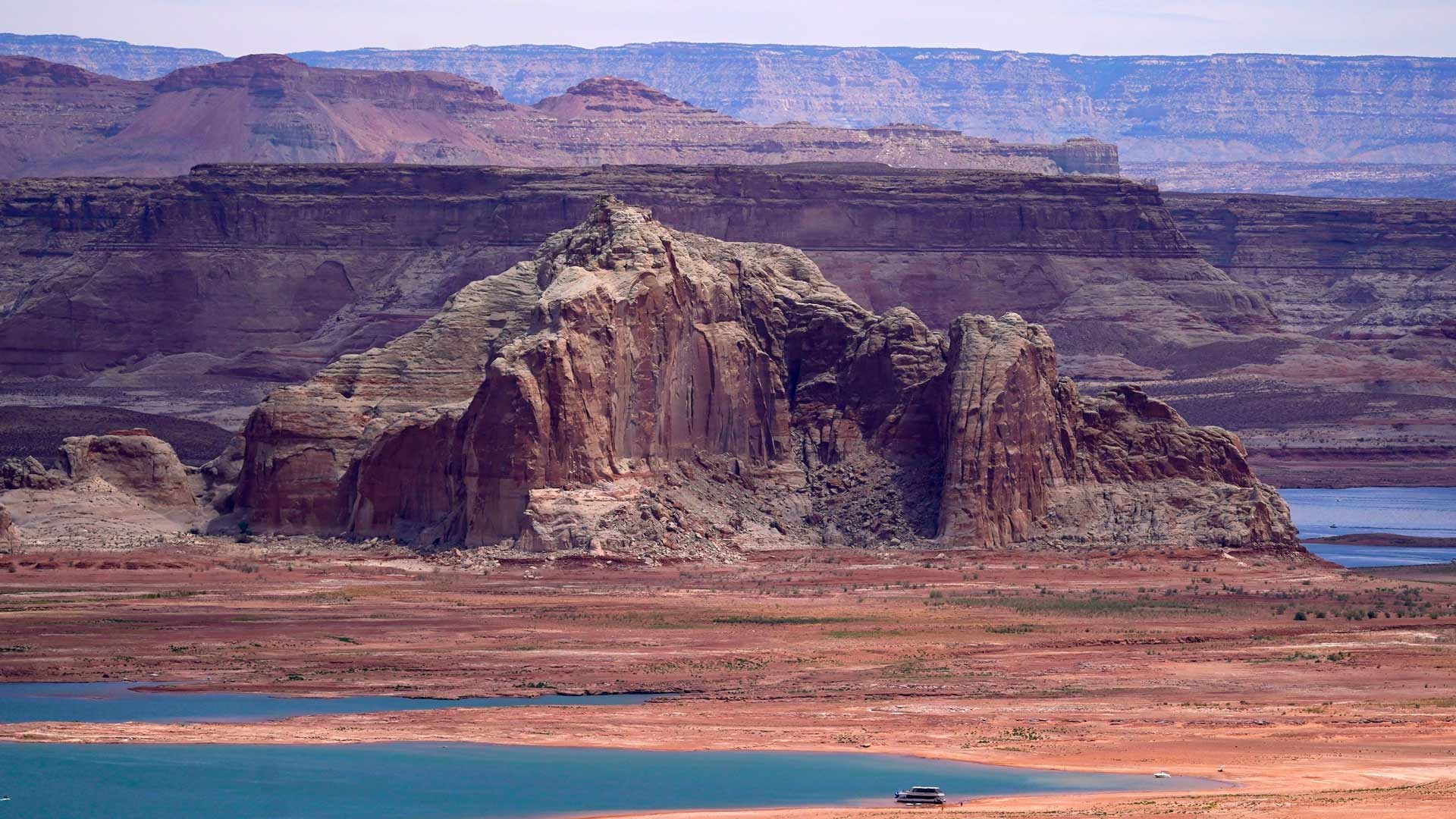 Low water levels at Wahweap Bay at Lake Powell along the Upper Colorado River Basin are shown, on June 9, 2021, at the Utah and Arizona border at Wahweap, Ariz.
Low water levels at Wahweap Bay at Lake Powell along the Upper Colorado River Basin are shown, on June 9, 2021, at the Utah and Arizona border at Wahweap, Ariz.
A public process started Thursday to reshape the way Colorado River water is distributed, with federal officials promising to collect comments about updating and enacting rules in 2027 to continue providing hydropower, drinking water, and irrigation to farms, cities, and tribes in seven Western U.S. states and Mexico.
The U.S. Interior Department said it will publish in the Federal Register on Friday a call for replacing guidelines that expire in 2026, including pacts enacted in 2007 for states to share cutbacks in water drawn from a river diminished by drought and climate change, as well as operating plans for the key Lake Powell and Lake Mead reservoirs. An agreement between the United States and Mexico on the use of Colorado River water also is set to expire at that time.
The department's U.S. Bureau of Reclamation promised a “robust and transparent public process” beginning with online virtual public meetings on July 17, July 18, and July 24. It set an Aug. 15 deadline for receipt of public comments on "specific operational guidelines, strategies and any other issues that should be considered.”
The result is expected to guide federal management of the dams that control the flow of the river throughout the Colorado River Basin, from the Rocky Mountains to the Gulf of California.
The 1,450-mile (2,334-kilometer) river is a crucial supplier of power and water for more than 40 million people in cities including Denver, Salt Lake City, Las Vegas, San Diego, Los Angeles, and Phoenix. However, agriculture uses the most water, including farms in the arid Imperial Valley area of California and Yuma County in Arizona that produce many of the nation's winter vegetables.
“As we look toward the next several years across the Basin, the new set of operating guidelines for Lake Powell and Lake Mead will be developed collaboratively based on the best available science,” Deputy Interior Secretary Tommy Beaudreau said in a statement.
“The Basin is currently facing an historic drought, driven by climate change, that is increasing the likelihood of warming temperatures and continued low-runoff conditions, and therefore reduced water availability, across the region,” the statement said.
Agreements that date back to 1922 and involve the federal government and the states of Arizona, California, Colorado, New Mexico, Nevada, Utah, and Wyoming promise more water to users than the river holds. Native American tribes along the river argue that they have not been involved in water-use decisions.
“The Bureau of Reclamation is committed to ensuring we have the tools and strategies in place to help guide the next era of the Colorado River Basin, especially in the face of continued drought conditions,” Bureau Commissioner Camille Calimlim Touton said.
The announcement is separate from a breakthrough interim agreement announced last month by water administrators from Arizona, Nevada, and California to cut their combined use of the dwindling Colorado River in exchange for funding from the U.S. government and to avoid letting the federal government decide and impose cuts.

By submitting your comments, you hereby give AZPM the right to post your comments and potentially use them in any other form of media operated by this institution.